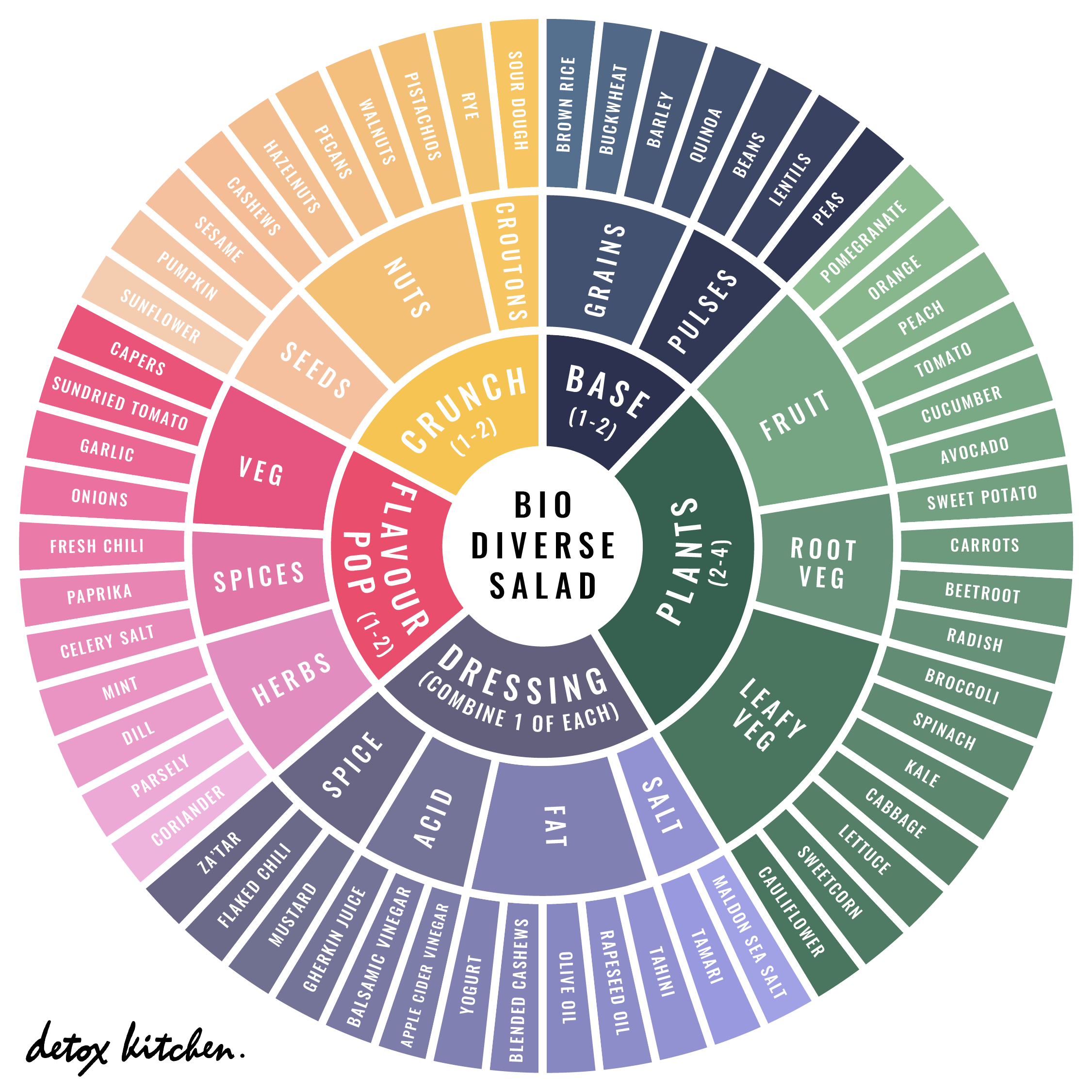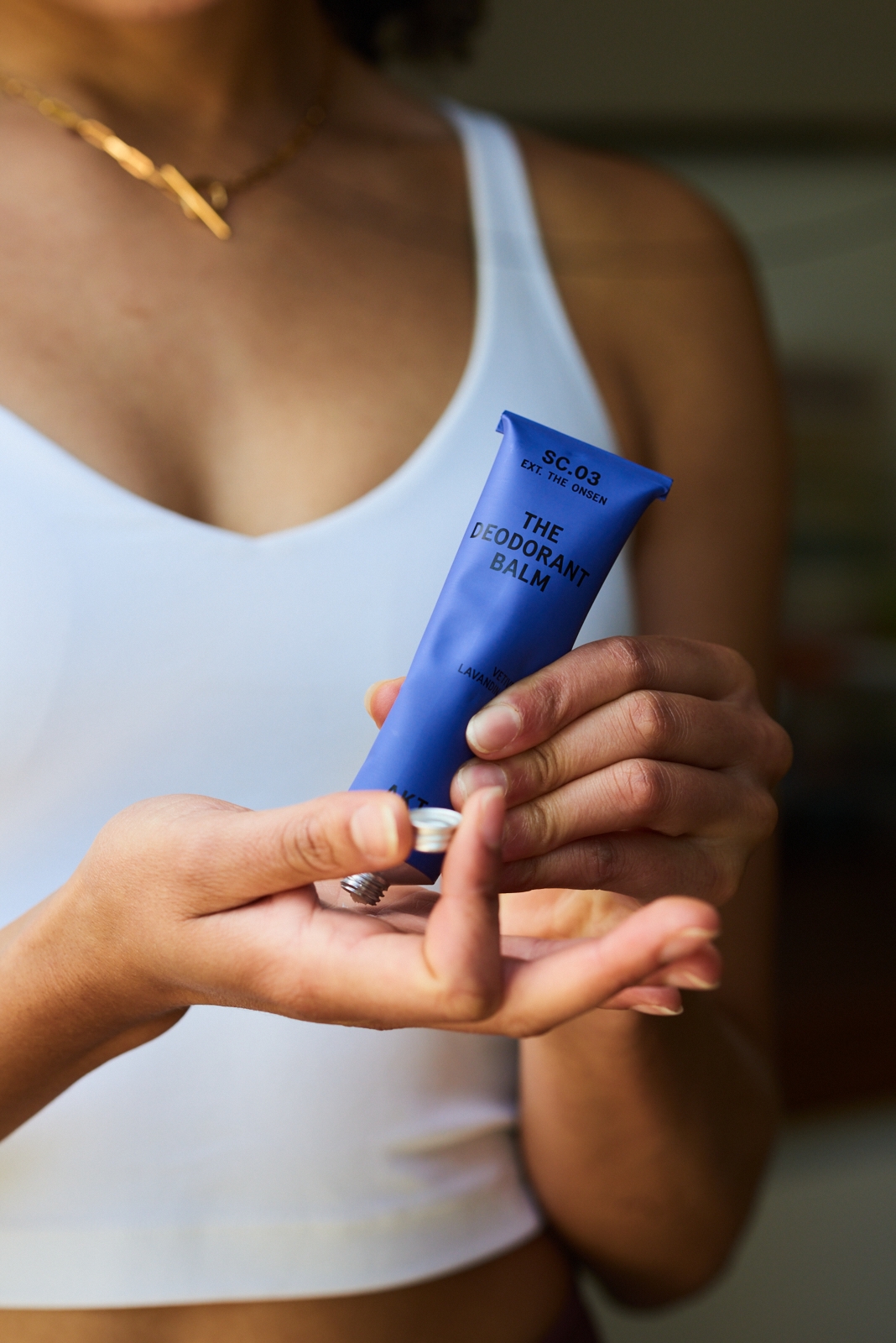28 Dec, 2017
Your Fuss-Free Guide to a Healthy Lifestyle
This guide is aimed at helping you take those first steps to a lighter, brighter you. Try dipping in and out of it when you feel in need of a helping hand, and remember not to beat yourself up about that treat or extra helping, just focus on getting that balance back afterwards.
LifestyleAt the Detox kitchen we have taken all the positive elements of detoxing (of which there are lots!), taken out all of the confusing buzzword elements, and created a program that is about celebrating all the good, wholesome, seasonal food that we put into our bodies.
Detoxing is not about deprivation, it is simply about removing foods that have a negative impact on our health and creating a diet that is rich in nutritionally dense food. It’s not a diet, it’s a lifestyle, and it’s one that is warm, and abundant and gloriously enjoyable!
This guide is aimed at helping you take those first steps to a lighter, brighter you. Try dipping in and out of it when you feel in need of a helping hand, and remember not to beat yourself up about that treat or extra helping, just focus on getting that balance back afterwards.
- Don’t turn to faddy diets to overcome weight issues. These will inevitably lead to poor energy and emotional struggles as well as leaving you lacking in key nutrients and developing a negative attitude towards food. Instead, focus on the long term.
- Cooking from scratch and avoiding processed foods is the best way to have more control over your diet. You’ll immediately be cutting out added salts, sugars, oils and preservatives used in a lot of processed and ready-made meals. This really is a big part of the battle won...
- ...but don’t think healthy cooking has to be boring! Pack in the flavour with garlic, turmeric, cinnamon, ginger, cumin, cayenne pepper...the list of spices with health benefits is endless. Not only will they add essential nutrients to your diet but they will also help add flavour and variety to your dishes. Have some fun with it, cook dinner this week using an ingredient you wouldn’t usually go for and really experiment with flavours, using your nose as a guide.
- Avoid wheat, dairy and refined sugars. All our food is free from these and created using only seasonal and local ingredients. It seems that more and more people are developing food intolerances to these food types, luckily we now have great alternatives such as gluten-free oats and flour which means granola and buckwheat pancakes are still on the breakfast menu! You can also replace regular cows milk for your morning porridge and hot drinks with almond, cashew, oat or fortified rice milk.
- Have a purge of your fridge and cupboard. Throw out the jarred sauces, sugary fruit juices, table salt, and processed meat which will all most likely be packed full of refined-sugars and preservatives, as well as being stripped of their nutrients. While this might sound restricting, we promise you it really isn't. Now is your chance to fill your shelves with delicious, vibrant and seasonal fruit and veg, whole grains, nuts and seeds, lean protein (fish, white meat), as well as herbs and spices.
- Try to eat between 5-10 portions of different coloured fruit and vegetables a day. We have all heard this before but it is so important that you are getting all the nutrients you need to ensure optimum health. There's easy hacks too such as sprinkling fruit on your morning porridge, and throwing in all the leftover veg in your fridge to make a stir-fry or stew.
- Instead of obsessing about calories, listen to what your body is telling you it needs, and eat those things. Think about the quality of the food you’re eating, it will taste better, you’ll appreciate it more and be more satisfied. Focus on buying the best quality you can afford, go for free-range or organic if possible.
- Live by the 80/20 rule. We recommend that for 80% of the time you eat food that is free from wheat, dairy and refined sugar, and for the other 20% eat what you like. It's important not to be too hard on yourself, so don’t beat yourself up for allowing yourself a treat now and again; just be mindful of what you eat afterwards and make sure to give your body the nutrients it needs to work properly. Once you've followed these steps for a few weeks you will notice a difference in what you crave anyway, having retrained your taste buds for the better.
- Research shows that those who eat breakfast have a more balanced diet throughout the day and are more likely to maintain a healthy weight. Who can argue with that? Breakfast always seems to be an easy sacrifice for those precious extra fifteen minutes in bed in the morning. But when we’re rushed we often reach for nutrient-poor, sugary cereals or quick fixes made from refined carbohydrates. The key to overcoming this is to eat a breakfast that contains slow- release carbohydrates (to maintain steady energy levels) as well as a little protein, and healthy fats to help keep us feeling fuller longer.
- Try to reduce or eliminate alcohol and caffeine. These both affect our blood sugar levels and it has been proven that when our blood sugar levels are more stable we are less likely to crave high sugar, caffeinated foods. And we are more likely to maintain a healthy weight. We know it can be hard to give them up entirely, so try simple swaps like having a cup of herbal tea in place of that extra caffeinated cup, and alternate a glass of water with alcoholic drinks each round. Also try to avoid cocktails that are packed full of hidden sugars, instead opt for a single vodka, soda water and squeeze of fresh lime.
We believe that a healthy eating lifestyle should feel intuitive, enjoyable, and full of flavour, not restrictive. This guide offers practical daily health tips that focus on eating whole, unprocessed foods, listening to your body, and embracing a variety of seasonal ingredients. And if time or motivation are not on your side, our healthy meal delivery service is designed to support your daily routine. We take away the stress of planning, shopping and cooking. All you're responsible for now is getting up in the morning!



